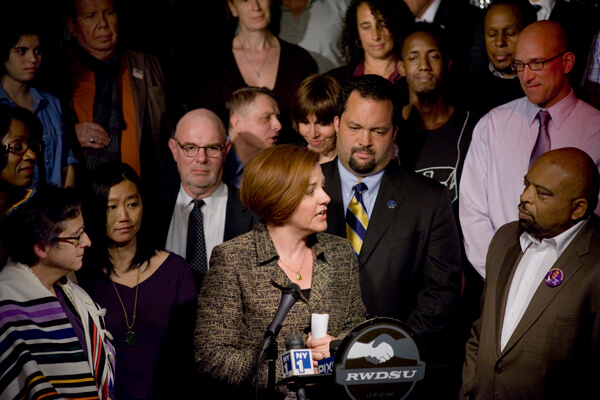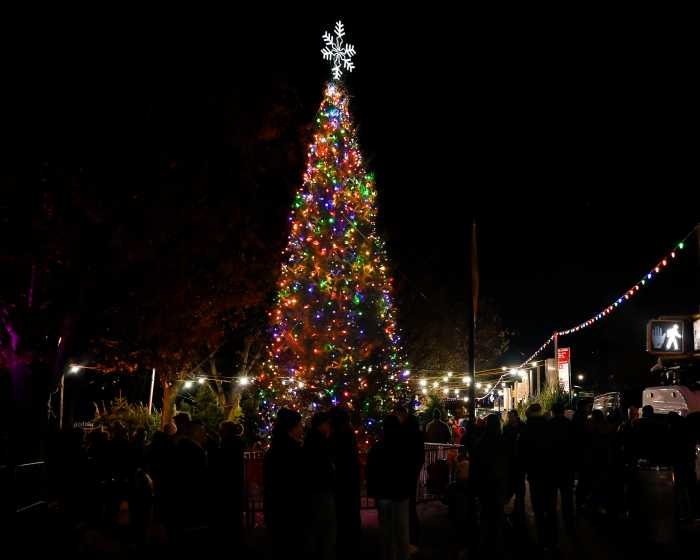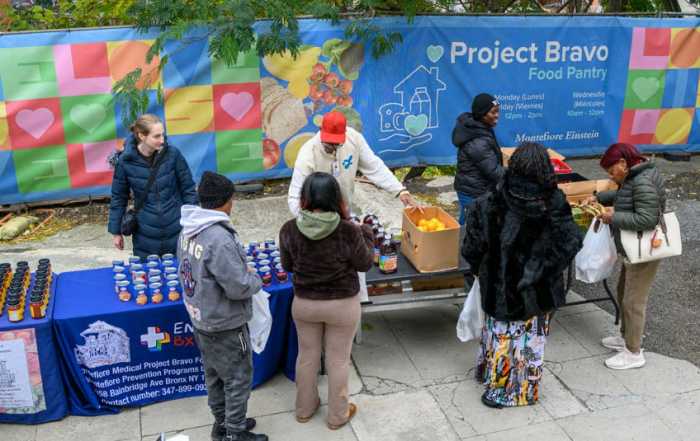“Today, we are going from dating on occasion to a marriage.”
Displaying his trademark skill at artful turns of phrase, the Reverend Al Sharpton spoke to the dramatic significance of a June 5 press conference at the Stonewall Inn that brought together leaders of dozens of local and national LGBT groups and the organizers of a June 17 Manhattan march to protest the NYPD’s stop and frisk policies that affect people of color in starkly disproportionate numbers.
The End Stop and Frisk Silent March Against Racial Profiling is planned for Father’s Day, and its lead organizers include Sharpton’s National Action Network, the NAACP, Local 1199 of the Service Employees International Union (SEIU), the United Federation of Teachers, and the New York Civil Liberties Union.
Last year, the NYPD made nearly 685,000 stop-and-frisks, up from less than 100,000 in 2002. Police department data demonstrate the sharp racial and ethnic disparities in the use of the tactic –– with 53 percent of them involving African Americans and 34 percent, Latinos.
On June 5, most of the big names in LGBT advocacy –– the Human Rights Campaign (HRC), the National Gay and Lesbian Task Force, the Empire State Pride Agenda, the New York City Anti-Violence Project (AVP), Lambda Legal, the Gay Men’s Health Crisis, the Gay and Lesbian Alliance Against Defamation, the Family Equality Council, the Transgender Legal Defense & Education Fund, Marriage Equality USA, the National Black Justice Coalition, and Congregation Beit Simchat Torah (CBST) among them –– stepped up in solidarity.
Terming the police’s stop and frisk policy “a process that is simply broken and that, if not fixed, will only cause further division,” City Council Speaker Christine Quinn, an out lesbian Chelsea Democrat expected to seek the mayoralty next year, said, “The key to our safety as a city is a positive connection between the police and the community.”
The nearly 700,000 stops, she noted, are not distributed evenly across the city’s neighborhoods or eight million residents but rather “concentrated in particular subsets of New Yorkers.”
The show of LGBT support for the June 17 march was organized by Stuart Appelbaum, the out gay president of the Retail, Wholesale and Department Store Union, who said that the beginning of Pride Month was an appropriate time to “join” the civil rights and LGBT rights movements. The press conference came just weeks after the NAACP went on record in support of marriage equality and the nation’s first African-American chief executive became the first president to do the same while in office.
The NAACP’s national president, Ben Jealous, was on hand for the event. It was less than two years ago when Jealous became the first NAACP president to appear at New York’s LGBT Community Center, and, while saying that “our movements have been coming closer together for some time,” he mentioned Bayard Rustin as an example of LGBT involvement throughout the history of the African-American fight for civil rights. Rustin, an out gay man who was arrested on lewdness charges in California and stopped and frisked in Harlem, was the lead organizer of the 1963 March on Washington where Dr. Martin Luther King, Jr., delivered his “I Have a Dream” speech.
Sharon Stapel, AVP’s executive director and one of two co-chairs –– along with longtime gay activist Jeffrey Campagna –– of the march’s LGBT table convened by Appelbaum, focusing on the ways in which stop and frisk affects people of color communities and LGBT people, termed much of the practice “unacceptable state-sanctioned violence” that represents “institutionalized racism, homophobia, and transphobia.”
A report just issued by the National Coalition of Anti-Violence Programs (NCAVP), made up of 16 organizations nationwide including the AVP, found that 32 percent of those who reported anti-LGBT violence and harassment cited police misconduct as part of their experience. Of that group, slightly more than half alleged unjustified arrest, while about a quarter said they had been subjected to excessive force, 17 percent to entrapment, and five percent to police raids.
Some transgender NCAVP clients said they had been profiled as sex workers and falsely arrested. Other LGBT clients complaining of police misconduct said they were arrested for public shows of affection or public sex either falsely or through selective enforcement. Nearly four in ten who cited police misconduct were survivors of violence who were themselves the ones arrested.
Among all offenders cited in the NCAVP report, police officers and other law enforcement agents made up more than nine percent of the total.
The report also found that transgender people of color experienced police violence at a rate more than two times greater than the LGBT community as a whole.
Chris Bilal, a young African-American gay man who works with Streetwise & Safe, a group that engages youth of color to help them navigate their encounters with police on the street, talked about having been stopped and frisked several times, saying his experiences have too often been “missing from the barbershop narrative” about the issue. When he and two gay friends were dancing to Beyoncé music in a park, he said, that apparently convinced police it gave them “probable cause to suspect we were engaged in unlawful sexual conduct.”
The risk of stop and frisk, he added, discourages many young gay men of color from carrying condoms for fear they will be profiled as sex workers. George Gresham, the African-American president of SEIU 1199, said that a common term among youth in many neighborhoods is “stop and frisk virgin,” used to describe that rare individual who has not yet been targeted by police.
Robert Pinter, who was falsely arrested in 2008 on prostitution charges while leaving a Manhattan video store for a consensual sexual encounter suggested by a much younger undercover police officer, spoke about his ongoing activism with a group he founded, Campaign to Stop the False Arrests. Pinter’s was one of at least 30 such arrests in 2008 in six Manhattan video stores identified by Gay City News. Law enforcement used the prostitution arrests as evidence in civil lawsuits aimed at closing down the video establishments.
Both Marty Rouse, HRC’s national field director, and CBST’s Rabbi Sharon Kleinbaum took note of recent revelations that the anti-gay National Organization for Marriage (NOM) secretly circulated memos highlighting the group’s aim of derailing progress on marriage equality by driving a wedge between the African-American and LGBT communities, two of the Democratic Party’s most loyal constituencies.
“We are all connected to each other,” Kleinbaum said. “We are all multiple identities at once. No one has the right to ask us to stand separate and apart.”
Stirring words about coalition politics, however, could not completely mask the potential discomfort some LGBT leaders may have felt taking such direct aim at the conduct of a police force so strongly defended by Mayor Michael Bloomberg, a highly visible advocate in the successful push for marriage equality in New York. Rouse declined to respond to a Village Voice question about HRC honoring the mayor last year with its National Ally for Equality Award, saying he was on hand to support the June 17 event.
Through six years as Council speaker, Quinn has been faulted in some progressive quarters for what was seen as her surprisingly close and amicable relationship with Bloomberg. On several occasions, Pinter told Gay City News that he valued her work on the video store arrest issue, but unlike some elected officials who were visible and vocal at street demonstrations, the speaker seems to have exerted much of her influence behind the scenes –– presumably with either the mayor or Police Commissioner Ray Kelly, or both. The June 5 event may signal a shift in her public posture on policing issues.















